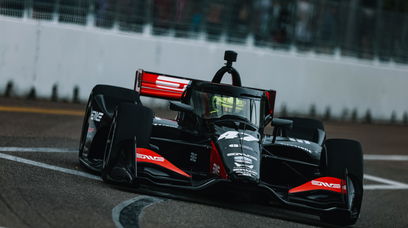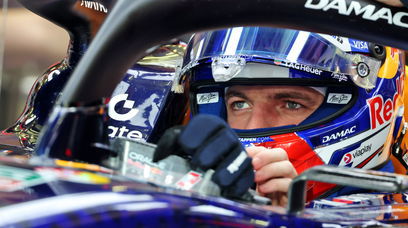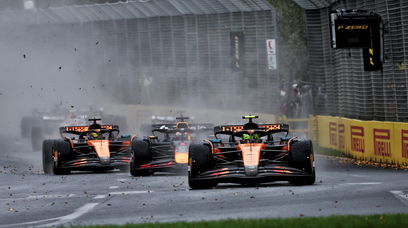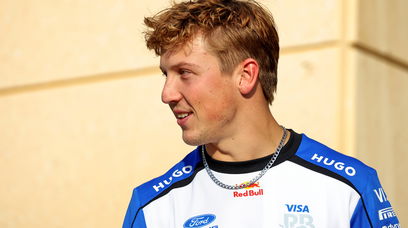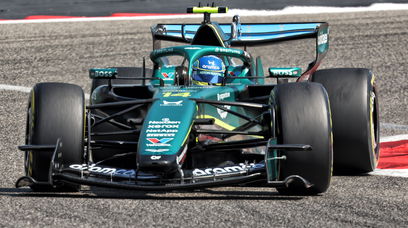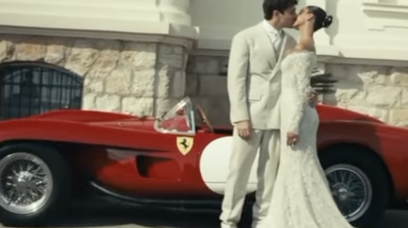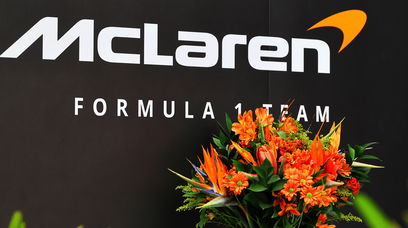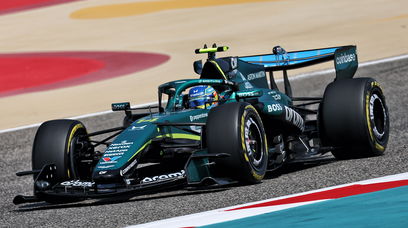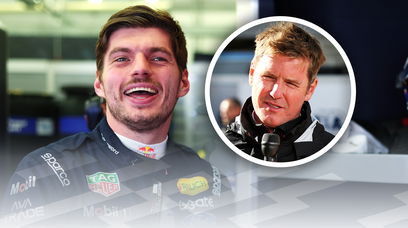As predicted by RacingNews365, Mattia Binotto has resigned from the company he dedicated his entire working life to date to, and thus the salient questions are: What does he do next; who replaces him? The first is by far the easiest to answer: Although the terms of separation are obviously confidential, there are two certainties, namely that a period of gardening leave - usually six months in the EU, albeit possibly stretching to a year - will have been agreed, and that he will receive a substantial payoff after an unblemished 28-year career with Ferrari, latterly in highly remunerated executive roles. Little known is that the Swiss-born Italian owns a vineyard in the Trentino region, so is likely to take the term ‘gardening leave’ literally and tend crops while contemplating his future. There are, though, no doubts his phone will soon start ringing - it likely has already - with substantial offers, both from team owners and the wider motor industry. Forget not that he is an absolutely outstanding automotive engineer and proven top manager, so offers will not be in short supply. His difficulty will lie in sifting them between sniffing his latest vintage.
The potential destination for Binotto?
So, from whence could offers come? First and foremost, Audi: The German brand enters F1 in its own right in 2026 and obviously needs an experienced executive with engineering and general management skills to oversee the project. Crucially, the company is gearing up its engine division - Binotto’s speciality - ahead of F1’s 2026 regulations, which demand a 50/50 split between ICE and hybrid power units. Forget not that Audi is infused with Italian character: The name ‘Audi’ is derived from Latin for ‘Listen’; it called its most iconic product ‘quattro’; and owns both Lamborghini and Ducati. While Binotto does not display vindictive tendencies, taking revenge by beating Ferrari at its own game under such circumstances would be sweet, indeed… Another company seeking a top engineer is Red Bull, having founded its in-house powertrain division. While the company recruited widely from various F1 team (and other) operations, the intention had been for Porsche personnel to oversee the project as part of a joint venture between the Stuttgart company and energy drinks brand. This JV fell apart in September, and thus there is likely a top vacancy. Then there is Mercedes F1, which on 18 December 2020 issued the following statement while announcing its revised shareholding structure, namely a third each for Mercedes, sponsor INEOS and team boss Toto Wolff: ‘Under the new shareholding structure, Toto Wolff will continue in his role as Team Principal and CEO for a further three years, leading the executive operations of the company and the racing team. ‘He will have the subsequent opportunity to transition to a new executive function within the organisation when he decides it is the right time to do so.’
That three-year period expires in a year - roughly when Binotto’s longest period of gardening leave ends. His potential availability could lead Wolff to believe soon is ‘the right time’, particularly given he now has a young family and has cut back on travel commitments in view of expanding race calendars. In addition, Mercedes High Performance Powertrains has recently lost staff (to Red Bull) so could well do with proven engineering-management skills. F1 Team Chairman Toto anyone? Those are but three options open for Binotto; there are others too, including a role with Formula 1 itself: For many years he had reported current F1 President/CEO Stefano Domenicali at Ferrari. With Ross Brawn - another former Domenicali colleague - stepping down as F1 Managing Director, an opening could well arise at F1 Towers for an experienced (and trusted) engineer, particularly as F1 heads for 2026. Incidentally, between his Ferrari and F1 gigs Domenicali undertook Audi’s first F1 study - aborted due to Dieselgate - before heading Lamborghini, so could well grease paths to Ingolstadt for his former engineering executive. The foregoing outlines just four future opportunities for Binotto; he may, though, decide that making red wines rather than beating red cars is where his future lies, in which case we wish him all the best in that endeavour. Which neatly introduces the next conundrum: Who should replace Binotto?
Who could be next for Ferrari?
RacingNews365 understands from sources that Ferrari CEO Benedetto Vigna will oversee the Scuderia while a replacement is sought - allegedly a line about him being interim team boss was removed from the press release shortly before distribution - but, crucially, the wording provides no definitive timeline for a replacement save to say: ‘The process is underway to identify … [a] new Team Principal and is expected to be finalised in the new year.’ Note the terms ‘expected’ and ‘new year’… Whatever, there are no doubts that finding a replacement will be considerably more challenging for Ferrari than Binotto’s task of deciding his future. For starters, there are few - in any – obviously suitable candidates available, or Vigna would long have replaced Binotto given how strongly he evidently felt about having one of the ‘old guard’ in that position regardless of his competencies. The next question is: Which existing team principal would sacrifice his current career for the cauldron that is Ferrari? Red Bull boss Christian Horner has been linked to the role - allegedly for an eye-watering stipend - but why would he, having worked so hard to achieve 11 titles in as many years, exchange it all for a position that has an average life expectancy of three years? And be forced to move countries and cultures to pursue it? Sauber boss Frederic Vasseur, too, has been mentioned as candidate, more usually due to strong bonds with driver Charles Leclerc - who won with Vasseur-managed teams in F3/F2 and made his F1 debut with Sauber – but whose contract, incidentally, expires end-2024. Then consider that the Frenchman has a fractious relationship with Nicolas Todt - Leclerc’s manager - having been business associates before they fell out. Another who has been mentioned is Antonello Coletta, who leads Ferrari’s Sports and GT operation and whose recent focus has been the Ferrari 499P Le Mans Hypercar project currently undergoing final stages of preparation ahead of its racing debut in 2023. One sure way of torpedoing the sports car campaign is to switch managers now; forget not the last time Ferrari went F1 and WEC was in 1973, when both bombed.
Could anybody tick all the Ferrari boxes?
Consider the ideal candidate: true racer fluent in Italian and living in Italy or happy to uproot with family; experienced in the way of Italian family politics and able to shrug aside such meddling; prepared to be publicly audited on a fortnightly basis by rabid tifosi; manage a team of 1200 diverse individuals producing a series of high-performance prototypes - including full powertrain - to prescribed regulations under pressure. Add in at least 20 weeks away from home, meddling from above, weight of an entire nation’s expectations resting upon the incumbent’s shoulders amid considerable shareholder pressure, and a corporate culture which has it that Glorious Ferrari wins but the team boss alone is responsible for failure. Any wonder Binotto resigned when asked to explain why Ferrari finished second in both 2022 championships? The fact that Ferrari is seeking its fifth team boss in 15 years points to systemic failures rather than personnel issues. The common denominator across the board is Chairman John Elkann who had been handpicked by his grandfather Gianni Agnelli (who passed away in 2003) to control the family’s various holdings, including Fiat, Ferrari and Juventus football club. Any wonder Ferrari leaves itself a vague timeline? What Ferrari needs is not so much a team principal but a fully-fledged executive who leads the F1 team as an autonomous unit and not merely as a race team; a CEO who holds equal status to the automotive division’s CEO rather than reporting to an individual whose only interest is moving enough metal to boost the share price (NYSE ticker: RACE) and will take whatever myopic decisions are required to achieve the target. Bluntly, Ferrari no longer holds the mystique in F1 circles it once did, with budget caps further complicating matters: Enticing staff to relocate via cheque books is no longer possible under the cap given all bar top three salaries are included in the limit, so an incoming team boss is stuck with the existing work force. British-based teams don’t have such issues, being situated in close proximity to each other. Which top racing manager wants to report back to bean counters; above all, which racing manager is prepared to be at the beck and call of such men? The rot set in when Ferrari went public in 2014, with every championship failure impacting on share price. Mercedes does not have that problem: its F1 operation is a) spun off, and b) miniscule by comparison with its automotive division. No individual could hope to tick all Ferrari’s boxes, but one comes close, namely a proven racer with solid understanding of F1, well versed in the way of Italian (family and wider) politics, speaks Italian fluently, lived there for many years before embarking on a cosmopolitan corporate life, is known to all major players, understands F1’s politics intimately, managed massive payrolls and is, crucially, available immediately. To entice this individual, to boot a graduate engineer with proven management skills at international level, Ferrari would, though, need to provide freedom and autonomy to totally restructure the Scuderia unto his vision and guarantee a five-year window before a single championship is demanded – much as Jean Todt was granted a seven-year window before ‘his’ team delivered a first title. Then the floodgates opened… Mr Elkann: You could do a lot worse than call Paul Hembery…
Most read

